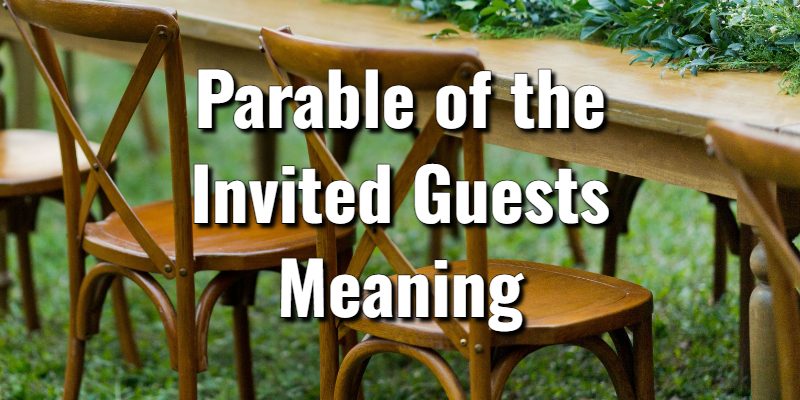In this parable, Jesus uses the story of a great supper to convey a lesson about responding to God’s invitation and the consequences of rejection. In the parable, Jesus tells of a certain man who prepared a great supper and sent his servant to invite many guests. When the time for the feast arrived, the servant went to those who had been invited, telling them that all things were ready. However, one by one, the guests began to make excuses for not attending. The servant returned to the master and reported that those who were originally invited had made excuses and would not come. In response, the master instructed the servant to go out into the streets and lanes of the city, bringing in the poor, the maimed, the blind, and the lame to fill his house. After doing so, there was still room, and the master told the servant to go into the highways and hedges to compel people to come in so that his house would be filled. The parable concludes with the master declaring that none of those who were initially invited would taste of his supper because they had made excuses. The parable underscores the idea that God’s invitation is open to all, regardless of their social status or religious background. It highlights the importance of responding to God’s call without making excuses, as there are consequences for rejecting His free offer of salvation through the Gospel of Jesus Christ.
Parable of the Invited Guests Meaning
The Parable of the Invited Guests meaning can be found in Luke 14:7-14:
Luke 14:7-14
“And he put forth a parable to those which were bidden, when he marked how they chose out the chief rooms; saying unto them, When thou art bidden of any man to a wedding, sit not down in the highest room; lest a more honourable man than thou be bidden of him; And he that bade thee and him come and say to thee, Give this man place; and thou begin with shame to take the lowest room. But when thou art bidden, go and sit down in the lowest room; that when he that bade thee cometh, he may say unto thee, Friend, go up higher: then shalt thou have worship in the presence of them that sit at meat with thee. For whosoever exalteth himself shall be abased; and he that humbleth himself shall be exalted. Then said he also to him that bade him, When thou makest a dinner or a supper, call not thy friends, nor thy brethren, neither thy kinsmen, nor thy rich neighbours; lest they also bid thee again, and a recompence be made thee. But when thou makest a feast, call the poor, the maimed, the lame, the blind: And thou shalt be blessed; for they cannot recompense thee: for thou shalt be recompensed at the resurrection of the just.”
Lord's Library participates in affiliate programs. We may make a small commission from products purchased through this resource.
- What Does the Bible Say About Achievements? With Key Scriptures - April 11, 2025
- What does the Bible Say About Abortion? With Key Scriptures - April 11, 2025
- Prosperity Gospel Meaning in the Scriptures: Is it Biblical? - April 7, 2025













